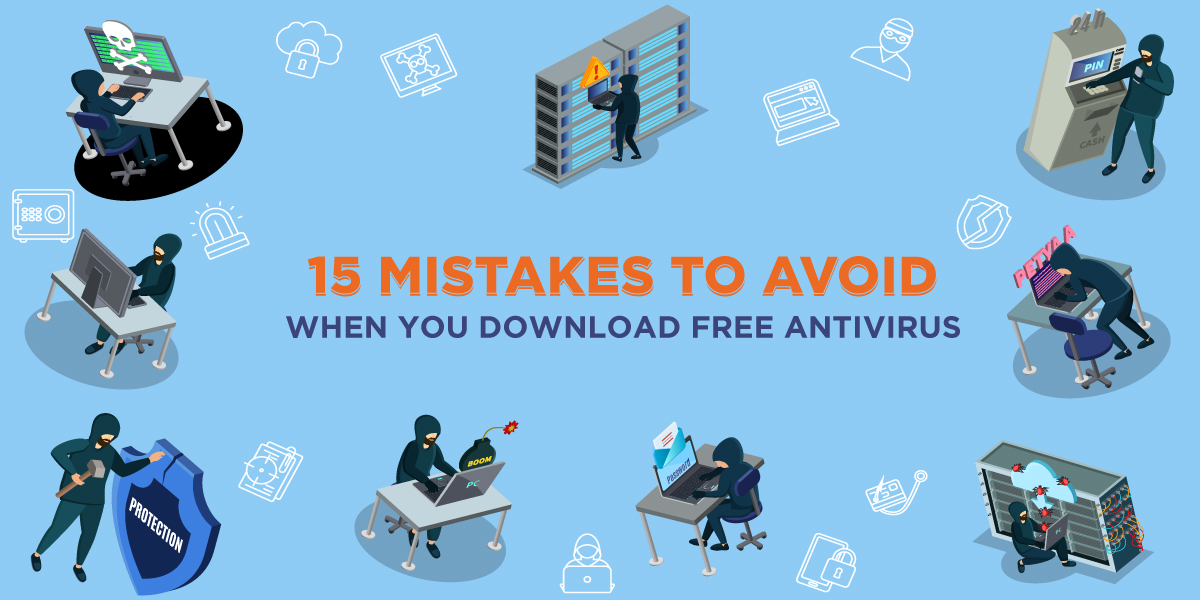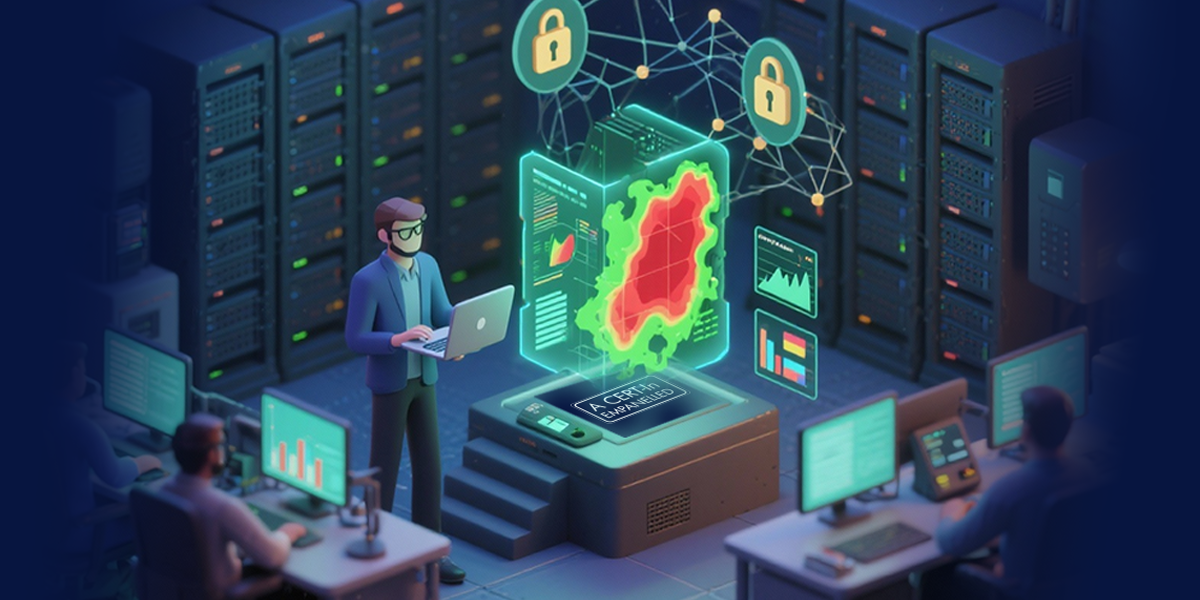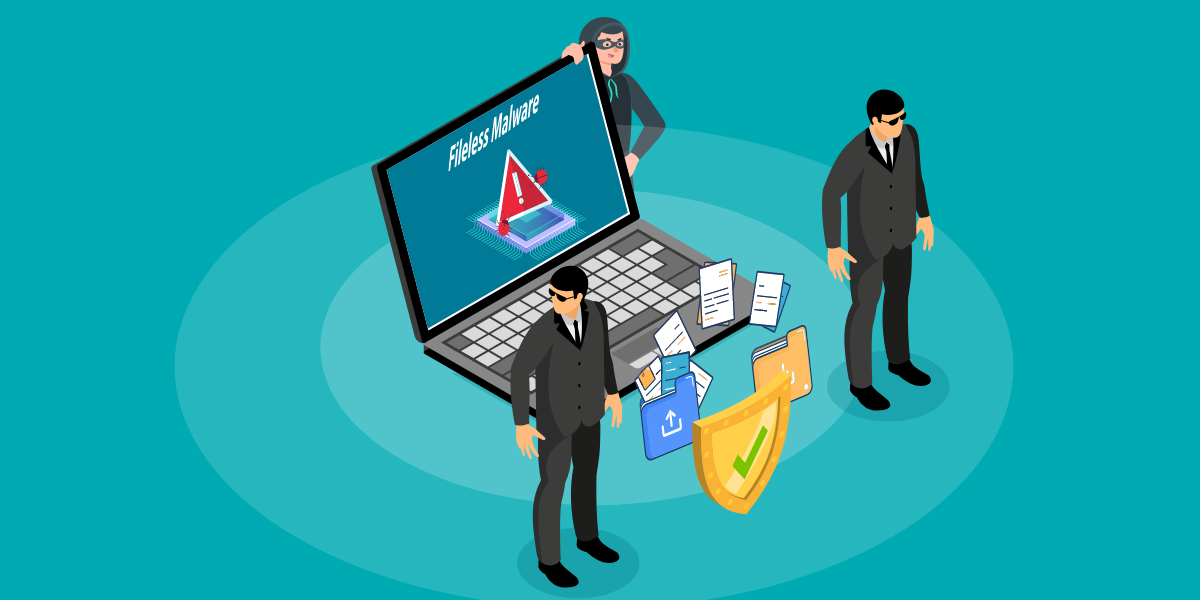The threats to digital security come in a dizzying number of ever-changing forms from an increasing variety of sources that include malicious programs like viruses, adware, spyware, ransomware, and other types of malware. Other types of attacks include phishing emails and software that can modify or delete files without your knowledge and so on.
The solution is Antivirus software. But everything comes at a price. There are several premium options available in the market. But the problem is people always want to download free antivirus software. To combat this issue, there are several websites available from where you can download free antivirus.
The following section will talk about the mistakes that users generally make while downloading free antivirus software and how to avoid those mistakes.
- Not doing proper research
Some users go through Google searches for keywords like “antivirus free download for pc” and download the immediate options available without doing proper research. Although most online security vendors generally refer to their products as “antivirus” software, “antivirus downloads” can be a misleading term. That’s because these programs address many more types of online threats than just viruses.
- Clicking on OK or Next without reading
When downloading the free software, the ‘OK’ or ‘Next’ pop up should be regarded very carefully. Always make sure you read the terms and conditions, know what you agree to, and never click on anything without reading the text above it. Otherwise, you could agree to install a new browser, toolbars, programs you don’t need, or other junkware.
- Downloading from third party websites
Always check download sites, but you don’t have to stay there. The publisher’s site will probably have the cleanest, most recent version of the program.
If the publisher redirects you to another site which has options like “antivirus download free”, you can safely assume it has the preferred version.
- False positives
Antivirus programs aren’t perfect. Sometimes they see malware when it doesn’t exist.
Therefore, if you are trying free antivirus software, make sure you try more than one and compare the scan results. If you find almost similar results in all the cases, it will be easier for you to narrow down your options as now you know which websites you can trust for their performance.
- Detection rates
When choosing antivirus software, the most crucial factor is how well it can protect your system against both known and unknown threats. Given that so many vendors provide protection rates well above the 95 percent mark, there is no excuse to go with a vendor that offers substandard security.
- Not being careful about fraudulent/phishing emails.
If you are unsure about a file or an email attachment from an untrusted and unverified source, avoid downloading it. Hackers, spies and malicious individuals have started attacking computers through emails as computers are becoming more and more secure; these bogus emails try to dupe us by extracting our personal information, like passwords and credit card numbers. They could also contain suspicious attachments with dangerous malware.
- Layered protection
Look for antivirus software that includes multiple layers of protection in its defence system as relying solely on a real-time guard that scans files for known threats has become obsolete
- Behaviour blocker
To combat the risk of zero-day attacks, some vendors make use of behaviour blockers, which can detect patterns of malicious behaviour and intercept offending programs before they can make changes to your system. A good behaviour blocker is the only technology that can reliably protect you against zero-day threats and should be a decisive factor while choosing free antivirus software.
- Usability
Look for a product that balances form and function with a user-friendly interface that’s easy and logical to navigate and has settings that can be easily tweaked to meet your needs. If your prospective antivirus software has miles of unintuitive menus and options that can’t be deciphered easily, it might be time to cross it off the list.
- Ignoring impact on system
if the antivirus slows down your system every time it runs a scan, there’s little point in choosing the product even if that boasts the best detection rates in the world
- Features
Some security suites come with a bundle of other security tools along with a virus scanner. While it may seem like these products will provide better protection, it’s essential to ask yourself: am I going to use these features?
You should avoid antivirus products that come bundled with components that you’re not going to use.
- Reviews
You can get detailed and good overviews of your AV options by looking at the results of independent websites that test these products.
If the scores are consistently poor on these tests or your product doesn’t participate in these tests, then it’s better to stay away from these free antivirus downloads.
- Support
Always be sure to read anything and everything in the support section before committing to any product. If it offers poor support, you might need to think about scraping it off the list.
Here at K7, the best antivirus for PC, we’re proud to offer reliable, super-fast and hassle-free emergency support, active forums and email support from real people who are 24/7 ready to help resolve your issues.
- Price
There is no such thing as “Free” in this world. This also holds for the free AV options available. In many cases, using ‘free’ antivirus software means you’re paying with your data, being subject to in-app advertisements or inadvertently installing some unwanted bundled software.
- Privacy
People generally ignore the terms and conditions once they see the option to download free antivirus. You should refrain from that. Always check the privacy policies of the AV vendors. Some are extensively collecting data about your computer usage to improve their products and consumer experience.











